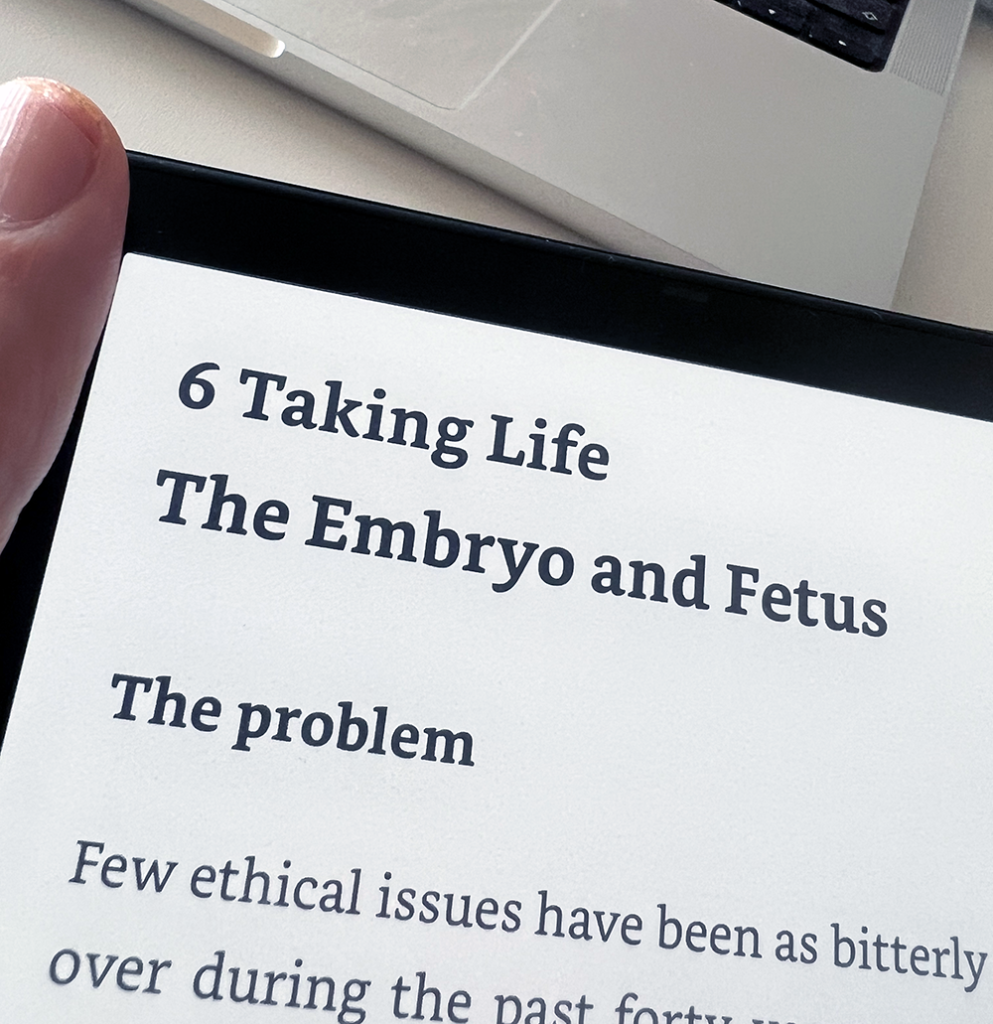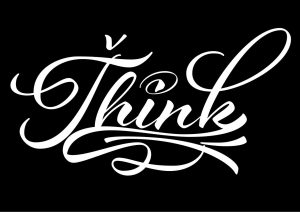On this site, I often argue that we should think critically—not take whatever pundits, influences, preachers, and Hollywood are selling and make it a part of us without giving it any more thought, but think about those ideas. What usually helps is looking at what other philosophies believe about a specific issue and comparing it to what we hear from the would-be “influencer” bunch mentioned above.
In our search for how we are to live, we might encounter various philosophies, some better, some worse. Some of them are interested in what ancient books say, and others are interested in what the latest science says. Faith and pretending that we know the answers satisfy some, while other philosophies are more interested in what science has proved and what logic and reason can tell us.
Today I want to talk about one of those philosophies, world views or whatever you wish to call it. A lot of us probably encountered the name multiple times, yet never had the time to look into it further. It’s a philosophy we call Humanism. Many people misunderstand it and think it’s only a more excellent way of saying “atheism”.
Humanism
While atheism is simply a position of not having a belief in any god (well, it’s not that easy, but this is a bit off-topic here – but we might say that a lack of belief is a bare minimum definition for atheism), Humanism is a set of ideas, principles and values that might naturally flow from a lack of faith and empathy for other humans and other living beings.
: a doctrine, attitude, or way of life centered on human interests or values especially: a philosophy that usually rejects supernaturalism and stresses an individual’s dignity and worth and capacity for self-realization through reason.
Merriam-Webster: Humanism
A dictionary must try to condense a totality of views and philosophies into a one-sentence definition. This definition, while mostly accurate, leaves out other living beings—humanists, contrary to its name —and it does not care only about humans. We can find the most complete and longest definition and description of Humanism in the 2002 Amsterdam Declaration, which describes the fundamentals of modern Humanism.
Naturalism
When talking about Humanism, you will almost always see it make some reference to “naturalism”. Here, we will not deviate from this tradition. Naturalism is a vital part of Humanism.
So, what is Naturalism? A dictionary may define Naturalism as:
the view of the world that takes account only of natural elements and forces, excluding the supernatural or spiritual.
Dictionary.com: Naturalism
the belief that all phenomena are covered by laws of science and that all teleological explanations are therefore without value.
For here and now, the following should suffice: Naturalism is the view that the totality of existence is best explained with natural forces. Nature is all there is. Nothing supernatural is required.
See my previous post: Naturalism: A Short Introduction for more details about Naturalism.

As we’ll see later when deciding on laws, rules, and policies, humanists start from a position of empathy and care for other humans and other sentient beings. We also recognise that other beings are like us—they feel, they can suffer, and they have various interests that we need to balance with our interests.
When doing that, we should try to remember that feelings are feelings—my feelings do not automatically mean more because they are mine. Other people have the same feelings.
Once again, it’s important to emphasise that Humanism is based on Naturalism. While religious people might hold the same positions on ethical issues, they usually reach these decisions because they believe God wants them to do so.
Humanists start from a non-dogmatic position. There are no requirements, no revelations, no manuals on how to live that a supreme being wrote. As Humanists start from Naturalism, they do not trust ancient texts or revelations. Humanists trust science to understand how our natural world works.
How do humanists think about what is right?
As stated earlier, humanists ignore what was ‘revealed’ in the ‘holy books. Said, Humanism rejects supernaturalism and doesn’t accept supernatural views. So, where do we look for answers?
Well, we believe we should act not only in our own interests but also from positions of solidarity and empathy. Each of us should care for the entire human race, our natural world, and what we leave for future generations.
We should make laws based on the concerns of everyone and empathy for other people and other sentient beings. Every human being should have certain rights, and no one is so important that their concerns and interests are above the concerns of others.

So, how do we decide on the ethical questions of today? We consider how it impacts everyone and decide what to believe based on that. Now, you might object that this sounds like relativism, but humanists are not relativists. We believe that through science, empathy and consideration of all involved, we may arrive at what is ‘objectively’ better.
How exactly to do that and which moral theory to use is open to interpretation, but the point is that humanists do not consider objective morality a domain of the gods.
For example, love between consenting adults is genuine and does no harm to anyone else—we believe that LGBTQ+ rights are human rights and should carry the same weight as the right to be in heterosexual relationships. And based on the principles of empathy and solidarity, we also believe straight people should be allies to the LGBTQ+ community because their rights are being threatened all over the world.
The formula seems simple. Ask what science says about an activity. Ask yourself if that activity is hurting anyone or our natural world. When doing your analysis, ignore what the holy books say, as they are not on as solid ground as science. Try to step out of your mind and take a point of view from the universe. Repeat when needed.
What are some practical ideas most humanists hold?
That said, it’s still helpful to list some beliefs and ideas held by humanists.

Humanism in the real world is not simply a guideline that states that we should have empathy and use our rational minds. In the real world, Humanism usually means holding specific ideas and having certain opinions.
Let’s see what beliefs most humanists hold.
Education free from indoctrination
Humanists believe that science, not revelation, is the way to discover our natural world. So, only science has a place in the education system. We should limit religious teachings to extracurricular activities and possibly not conduct them on school property at all.
Specific scientific facts, like evolution, can trouble religious parents and policymakers. Humanists believe that those feelings should have no impact on policy and teachers should be free to teach science in their classrooms.
Secularism
The interests of the church should be separate from the interests of the state, and one should not influence the other.
The interests of the church should be separate from the interests of the state and one should not influence the other.– An attrmpt to summarize what most people mean by secularism today, in the real world.
Humanists acknowledge that religious beliefs exist and that they might provide a person with hope or comfort. But we also think they cannot use those religious beliefs as a basis to decide moral issues for non-believers or members of other religions. Therefore, we believe that all countries should be secular and should neither impose nor endorse any religion.
Animal welfare
Humanists are not only about humans. We recognise that we are animals. We are apes. That means we are not elevated above everything else but are also a part of nature. Yes, our cognitive abilities are more ‘advanced’, but that doesn’t automatically mean we’re above everything else. We also recognise that animals can suffer, feel pain, and possibly experience other emotions, such as loneliness, sadness, or fear.
Hence, the principle of empathy requires us—if we cannot be vegans or vegetarians—to at least care about animal welfare each step of the way, from birth to the slaughter. Whether eating meat is ethical is not part of Humanism yet. The debate is still on. But what we recognise and agree on is that animal welfare is above religious practices such as ritual slaughter.
Abortion
Humanists are pro-choice. We are strongly for reproductive rights. We also believe that more and better sex education is needed almost everywhere and that it should be free.
The entire defence of abortion is a topic for its post and cannot be adequately addressed here because of a lack of space.
Vaccines
Humanists believe in science. We believe that vaccines are safe and among the most useful human inventions. The World Health Organisation has declared Vaccine Hesitancy one of the 10 most significant threats to global health.
We believe that every humanist must point out that vaccines are safe and that there are a lot of studies that show they do not cause autism. Take, for example, the 10-year survey of over 600.000 Danish children, as reported by The New York Times.
Conclusions
Humanism is not the same as atheism. Atheism can get complicated, as we already established on this page, but it may mean nothing more than not believing in God. It says nothing else.
Humanism is a philosophy that might naturally flow from a lack of belief. It starts with Naturalism and adds the idea that humans may use our rational minds to determine the ethically best ways to live. By attempting to do so, humanists reject relativism—the idea that every culture decides for itself what is good and what is bad. Humanists believe that there are objective standards and that some ideas are better than others.
The ‘tools’ that might be used to achieve this are numerous – theory of justice, categorical imperative, desire utilitarianism, etc., but it’s not outside the domain that can be reached by the human mind.
Add empathy and respect for humans and other living beings, and you should have a good idea of what Humanism is all about.
- Starts from naturalism
- Believes that this is the only life we’ll get
- Cares about the desires of humans and other living beings
- Believes that science, empathy and consideration for others should be the basis of an ethical life
- When considering how laws should be made care about the interests of living beings more than about religious ideas
Further reading
- Humanism on Wikipedia
- What is humanism? on Humanists International
- About Humanism – Humanists UK
- Are You Humanist? on American Humanist Association




